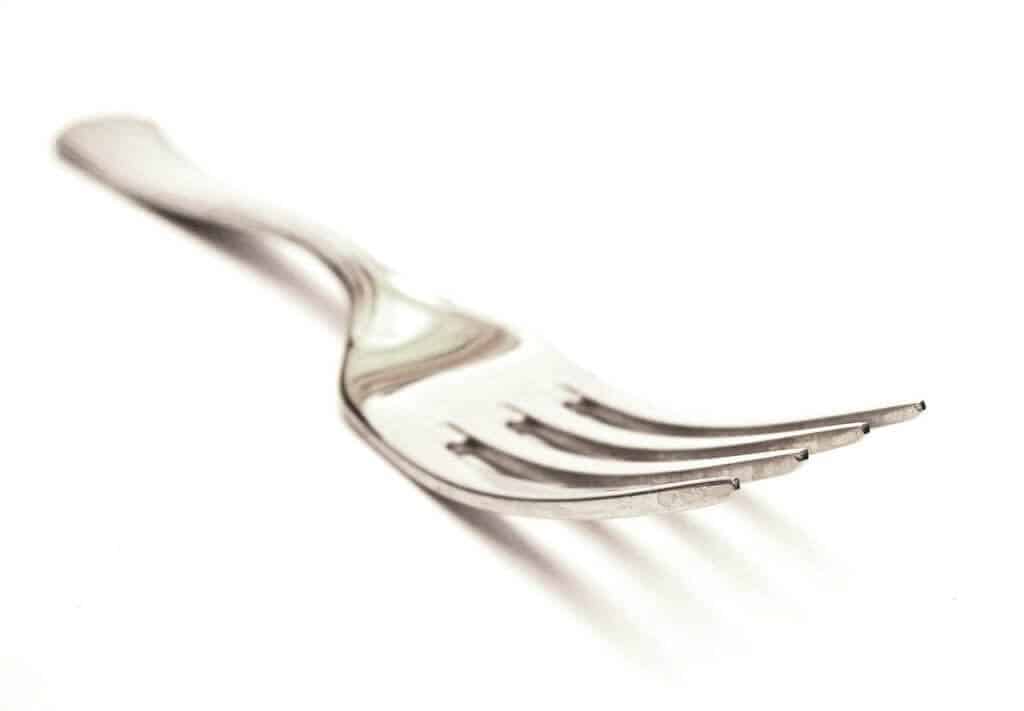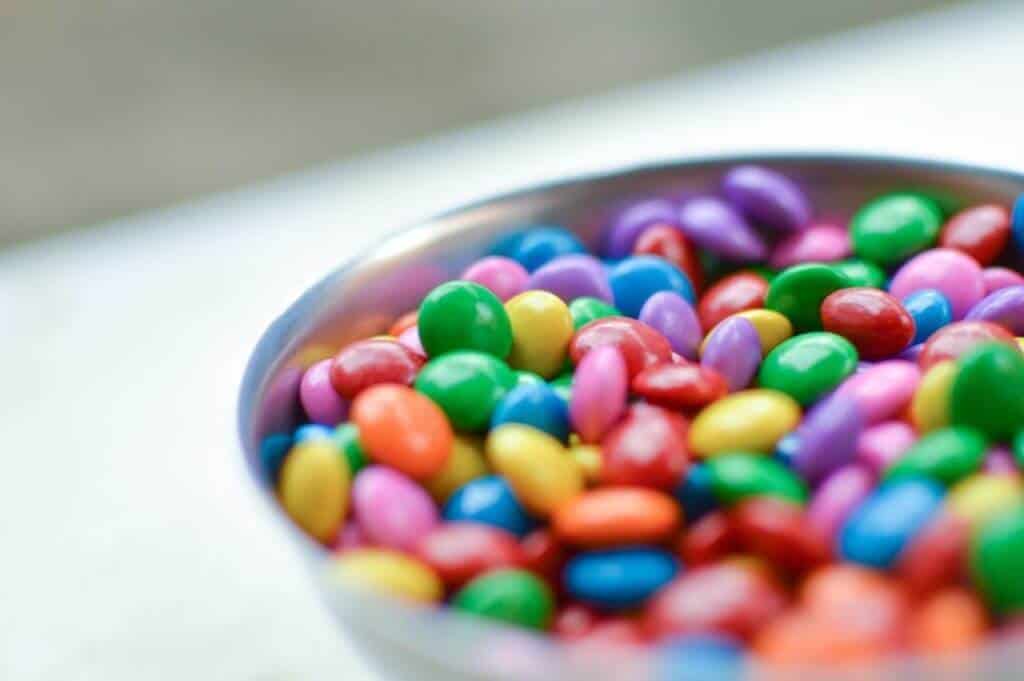The general idea is if you want to lose weight, you need to eat less and suppress appetite. But, eating less doesn’t mean you will suppress hunger. There’s a chance that you won’t lose any weight.
“While eating frequent meals doesn’t necessarily lead to weight gain in of itself – given that caloric intake remains consistent – it does result in higher average blood sugar levels and decreased satiety, which can lead to overeating and weight gain.
In contrast, we have seen that eating fewer, larger meals helps maintain lower average blood sugar levels, increases satiety and metabolism, and may even help with weight loss. As it turns out, the traditional three meals per day is not such a bad way to eat after all,” says Kimberly Killebrew, a licensed Marriage and Family Therapist and owner of Daring Gourmet.
The following is a list of 16 scientifically-proven ways that will help reduce hunger and suppress appetite.
Drinking Coffee Can Help Suppress Appetite
There are many weight-loss and healthy benefits of coffee. Drinking coffee can also help suppress appetite.
According to research from The Journal of Physiology and The Journal of the American College of Nutrition, coffee increases the release of the hormone peptide YY(PYY) into the stomach and provides the body with a feeling of fullness after eating.
Scientists are of the opinion the PYY level plays an integral role in assessing how much food an individual is likely to eat (see Proceedings of the Nutrition Society).
Quite strangely, there is a possibility that decaffeinated coffee may lead to a higher reduction in hunger than regular coffee, Medical News Today reports. The effects are believed to last up to three hours after drinking.
More studies are required to determine how this works.
The Bottom Line: Drinking coffee, especially the decaffeinated variety, can suppress appetite for up to three hours.
Do you know how many calories are in that morning coffee? To lose weight, the coffee must not be laden with tons of calories and fat. Use an app like Noom to track what you’re drinking and the calories inside.
Be Aware of What You Are Eating
In most cases, the brain is perfectly aware of whether you are hungry or full.
One problem occurs if you eat quickly or get distracted. It can be harder for your brain to get the message that you are full.
You can solve this problem by focusing on the foods in front of you and getting rid of any distractions—this is a critical element of mindful eating.
Research has proven when an individual practices mindfulness when eating, they will derive more pleasure from the meal, says Today’s Dietitian. This places focus on the quality of the meal rather than the quantity. This lessens the potential for binge eating.
There appears to be a link to connect hunger to what the eyes can see and fullness.
In one experiment (Journal of Health Psychology), participants were offered two milkshakes that were the same. One of the milkshakes was called “620 calorie indulgence” while the other one was identified with a “120 calorie-sensible” label.
Even though both groups consumed the same calories, the levels of hunger hormones dropped more for those participants who thought they had consumed the “indulgent” drink.
When an individual believes a drink has more calories than it does, it can also succeed in activating those areas of the brain that trigger the feeling of being full, suggests one study in Molecular Metabolism.
Since what you see can have a direct influence on how full you feel, it can be quite beneficial to be mindful of what you eat.
The Bottom Line: The practice of mindful eating has been proven to decrease feelings of hunger and increase the feeling of being full. This is something appetite suppressants work toward. It can also help reduce the number of calories you consume and help prevent overeating.
A Bigger Fork May Be the Answer to Overeating
Using a bigger fork may make it seem like you are eating more food.
A recent study supports the premise that those who ate with bigger forks ate ten percent less food than those who used smaller forks, bistroMD reports.
Researchers believe there is a possibility that when people use small forks to eat, they may feel they are failing to make progress toward satisfying their hunger, so they end up eating more.
This type of effect does not occur with all utensils. For instance, the use of larger serving spoons may increase a person’s food intake by as much as 14.5 percent (see research from the American Journal of Preventive Medicine).
The Bottom Line: When you use a larger fork to eat, it may help you lessen the amount of food you need to feel full and suppress appetite.
Serving yourself the right portion sizes is as important as any other piece of advice. Apps like Noom work with extensive food databases and information to ensure you’re serving just the right portion size.
Exercise Can Help Suppress Appetite
There is a school of thought that says exercise reduces some of the activity in regions of the brain that control food cravings, reports the Daily Herald. This can cause an individual to have less desire to eat.
Exercise can also reduce the levels of hunger hormones while increasing an individual’s feelings of fullness, Exercise Medicine says.
According to research in Applied Physiology, Nutrition, and Metabolism, both aerobic and resistance exercise have equal abilities to influence levels of hormones and the size of the meal a person wants to eat after exercising.
The Bottom Line: Aerobic and resistance exercise are both capable of helping increase the fullness hormones and lead to a reduction in hunger and caloric intake.
Protein to Suppress Appetite
Adding protein to the diet can help suppress appetite and consume fewer calories at your next meal. Protein can also help with fat loss, according to the Journal of the American College of Nutrition and Harvard Health.
A recent weight loss study in the International Journal of Obesity compared two different breakfasts that contained the same number of calories; one consisted of eggs and the other bagels.
Those participants who consumed the eggs lost 65 percent more weight and 16 percent more body fat during eight weeks of the study.
A high intake of protein may also help prevent the loss of muscle when you consume fewer calories to lose weight, reveals a study in Medicine & Science in Sports & Exercise.
To reap the benefits of protein intake, it should make up approximately 20-30 percent of your total caloric intake, according to a British Journal of Nutrition study.
The Bottom Line: You will achieve more success with your weight loss when you eat enough protein to suppress appetite.
Solid and Liquid Calories Are Not Equal
Solid and liquid calories do not necessarily suppress appetite in the same way.
A recent review compared a solid and liquid snack, and it found that those who ate a solid snack were 38 percent less likely to overeat at the next meal.
A second study in Hormone and Metabolic Research showed those participants who consumed semi-solid snacks were not as hungry and had a lower appetite and greater feeling of fullness than those who drank a liquid snack.
Because solids require more chewing, this allows more time for the signal that you are full to reach the brain (see research from The American Journal of Clinical Nutrition).
Another opinion by scientists and as confirmed by an Iowa State University study is that when a person spends extra time chewing it allows the solid food to remain in touch with the taste buds for a more extended period, thus promoting the feeling of being full.
This could be one reason why dieters who use liquid supplements don’t feel less hungry.
The Bottom Line: When you eat your calories instead of drinking them, you have a better chance of eating less without feeling like you are still hungry.
Do you know if you are taking in extra calories from drinks? Even some diet drinks contain calories – so tracking is the best option. The huge database of foods and drinks makes Noomthe easy choice.
Take Advantage of the Health Benefits of Ginger
Ginger has many different health benefits. Some include reduced nausea, blood sugar levels, inflammation, and even muscle pain (for many other benefits, check out WebMD, Medical News Today, and Natural Society).
Recent research has uncovered another benefit of ginger: it can suppress appetite.
According to one study in Metabolism, when dieters dissolved two grams of ginger powder in hot water and used during breakfast, participants didn’t feel as hungry after eating.
Unfortunately, this study was rather small. More research on humans is needed before any final answer can be reached.
The Bottom Line: While ginger may have the ability to decrease feelings of hunger, more research is needed.
Choose Fiber-Rich Foods
A diet that is high in fiber slows the stomach-emptying process to suppress appetite (see research from Trends in Food Science & Technology and the Journal of Endocrinology).
Another benefit of fiber is its ability to ferment in the bowel, which then produces short-chain fatty acids. This further helps make the body feel full quicker, states the Food and Agriculture Organization.
A recent review reported by the University Herald says that when you add fiber-rich foods such as beans, peas, chickpeas, and lentils to your meal, it can suppress appetite by approximately 31 percent compared to meals that are equivalent but do not have beans.
Whole grains that are rich in fiber can also be beneficial in reducing hunger and making you feel full, an article in The Close Relationship: Health and Nutrition claims.
According to WebMD, when you eat an additional 14 grams of fiber every day, it can decrease your intake of calories by as much as 10 percent. Over about four months, this could result in a weight loss of 4.2 pounds.
More recent studies in Obesity Reviews and the Journal of the American College of Nutrition have observed effects that are not quite as dramatic. This may be based on the fact researchers used different types of fiber.
Thicker types of fiber such as pectins, guar gum and beta-glucans appear to be much more filling than other types of fiber, according to Nutrients Review and PLoS One.
Fiber-rich foods often contain many beneficial minerals, antioxidants, vitamins and plant components, state studies in Obesity Reviews and the Journal of the American College of Nutrition.
Plant nutrition is something vegan diets focus on. This means those who choose a diet that contains plenty of fruits, beans, nuts, vegetables, and seeds can enjoy long-term health.
The Bottom Line: People who consume a diet rich in fiber will not suffer from as much hunger. This means they will be able to reduce the calories they eat. A high fiber diet can also offer long-term health benefits.
You can write down the calories you consume daily, but to achieve the results you want with fiber you need to know how much you’re consuming. Too little and it won’t be effective and too much and you’ll feel bloated and gassy. Noom is a weight-loss app that can help.
Choose High-Protein Healthy Snacks
When you consume high-protein snacks, there’s a chance you’ll feel fuller longer because it works to suppress appetite.
For example, if you eat high-protein yogurt instead of high-fat crackers or chocolate snacks, you will decrease your hunger more effectively, says The Medical Daily.
If you consume high-protein yogurt in the afternoon, you may consume about 100 fewer calories at dinner compared to the other types of snacks, according to research published in Nutrition Journal.
The Bottom Line: In all likelihood, if you eat a high-protein rather than a high-fat snack, it will decrease your hunger and prevent you from overeating when you eat again.
Sleep Can Suppress Appetite and Stop Weight Gain
Making sure you get enough quality sleep can help suppress appetite.
Studies have been conducted that show sleep deprivation can cause an increase in hunger by as much as 24 percent. It may also decrease some fullness hormones by as much as 26 percent, CNN and Medical News Today report.
Research from the European Journal of Clinical Nutrition has shown that consumers who sleep fewer than seven hours nightly rate after-breakfast fullness levels as 26 percent lower.
Also, several studies (see Harvard T.H. Chan School of Public Health, The National Sleep Foundation, Current Opinion in Clinical Nutrition & Metabolic Care) have linked short sleep duration (less than six hours per night) with a 55 percent increase in the potential for obesity.
The Bottom Line: Those who get fewer than seven hours of sleep nightly are more likely to have increased hunger levels throughout the day.
Water Can Give You a Feeling of Fullness
Having a glass of water before meals can help decrease the feelings of hunger you experience before mealtime.
Drinking water can also help you feel fuller quicker after meals and increase weight loss success, Time Magazine writes.
Studies in the European Journal of Nutrition have shown people who drink two glasses of water as soon as they finish eating a meal tend to consume 22 percent fewer calories than those who do not drink any water.
Scientists think that approximately 17 ounces of water are enough to stretch the stomach sufficiently for signals of fullness to reach the brain.
Water empties from the stomach quickly, so for this method to be successful, you must consume the water fairly close to mealtime.
It is possible if you start your meal with a bowl of soup as it will work the same way.
Researchers noted that when a person eats a bowl of soup right before a meal, there is a decrease in the hunger and reduction of approximately 100 calories from the meal itself.
The Bottom Line: A person who drinks low-calorie liquids before a meal can help you consume fewer calories and suppress appetite.
Did you know some creamy soups have far more calories than an entire candy bar? Enter your soup into the food tracker with Noom to make sure you’re not getting too many calories from soup.
Add Spices to Your Meals
Ginger is not necessarily the only spice used to suppress appetite.
A recent review compared the effects of capsaicin and capsiate.
The results showed both had a positive effect and helped fight hunger, WebMD reports.
The Bottom Line: The compounds found in hot and sweet peppers, like cayenne, can help curb hunger and increase the sense of fullness.
Eat on Smaller Plates
Reducing the size of your plates and bowls can help you lessen the amount of food you eat without you realizing it. This can help you consume fewer calories, but not feel as if you are deprived.
On an interesting note is the fact that this action can fool even someone very aware of what is being eaten.
For example, one study in the American Journal of Preventive Medicine noted that even nutrition experts tend to unconsciously serve themselves 31 percent more ice cream when they use larger bowls.
Another study reported that participants who served themselves snacks from larger plates or bowls tended to consume 142 more calories than those who had snacks in smaller containers.
The Bottom Line: You can unconsciously eat less without leaving you hungry by eating from smaller plates.
Have Pictures of Foods You Love
Some researchers say you can convince yourself to eat less by simply picturing yourself eating (see research from the Science Journal).
Participants in one experiment imagined eating three or 33 M&Ms before they were given a bowl of candy. Those who initially believed they were eating more M&Ms consumed an average of 60 percent less of the candy.
Researchers discovered the same result when they used cheese instead of M&Ms.
This visualization exercise tricks the mind into believing you have already consumed some of the foods you desired, which significantly decreases your craving for those foods.
The Bottom Line: When you visualize yourself eating all those foods you crave, it can cause a reduction in your desire to have them.
Omega-3 Fats Increase the Level of the Fullness Hormone
According to Nutrition Wonderland, Omega-3 fats can increase the levels of the fitness hormone, leptin. This is especially true of the Omega-3 that is contained in fish and algae oils.
A diet that is rich in Omega-3 fats may also suppress appetite after meals even when calories are restricted for weight loss, according to Appetite.
The Bottom Line: Omega-3 fats can decrease hunger for people who are overweight and obese.
Along with tracking foods and drinks with Noom, you may find it helpful to track your progress in other areas with a weight-loss journal.
Eliminate Body Fat Around Your Middle for Effective Weight Loss
Neuropeptide Y (NPY) is the hormone affecting energy balance. It also can help suppress appetite.
Experts believe higher levels of NPY increase appetite and can change the percentage of calories stored as fat (see an article from the American Physiological Society).
Another thing researchers have found is that body fat may increase the production of NPY. This is particularly the case of the body fat that surrounds the organs.
Losing weight around the middle may help suppress appetite and result in lower hunger levels.
The Bottom Line: When you lose fat around the middle it can reduce the levels of neuropeptide Y and help suppress appetite and hunger.
What Users Are Saying
“I was told that often you think you are hungry but really you are thirsty. Drink lots and lots of water. I have lost 12 kg in the last year or so. The hunger passes if you can just ignore it for 10-20 minutes. You are probably just craving sugar-most food breaks down to sugar. In a few days it will get better.”
“The OG Radiate killed my appetite. I haven’t tried Radiate+ but reviews seem to be just as good.”
“Caffeine is not my friend. An hour after drinking coffee I become so hungry like someone who haven’t eaten for days.”
Final Thoughts About Ways to Suppress Appetite
Hunger is very natural. But that doesn’t mean it has to get the best of you.
The above tips are just a few small things you can do to suppress appetite and hunger.
Remember to get some sleep, add a little spice to your meals, and check out fish with healthy fats to get started.
16 Ways Science Says You Can Reduce Hunger and Suppress Appetite Questions & Answers
- Recent:
The best way to stop feeling hungry immediately is to eat a small, healthy snack. Aim for snacks that include protein and some fibre, like a piece of cheese or an apple with nut butter. Having some water can also help as it takes up space in the stomach and makes you feel fuller faster.

Summer Banks has researched over 5000 weight-loss programs, pills, shakes and diet plans. Previously, she managed 15 supplement brands, worked with professionals in the weight loss industry and completed coursework in nutrition at Stanford University.






